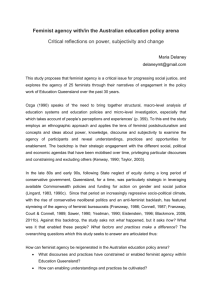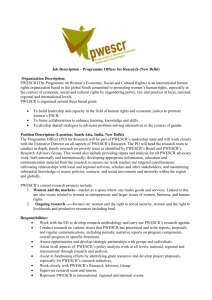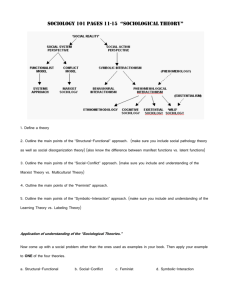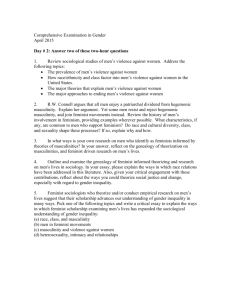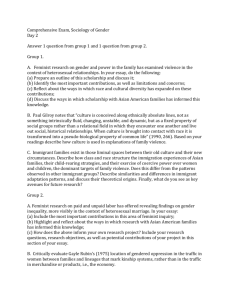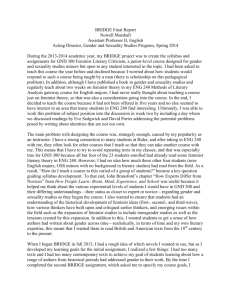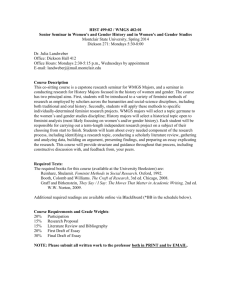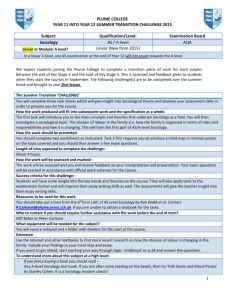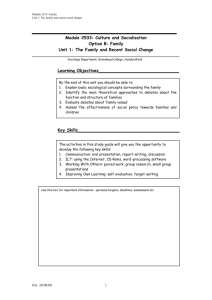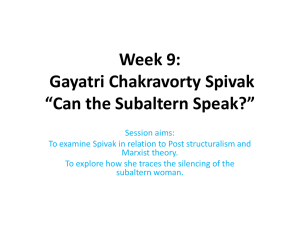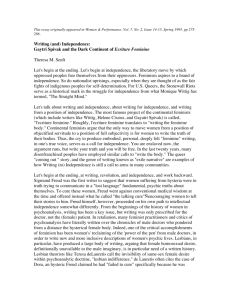Comprehensive Examination in Gender April 2013 Day # 1: Answer
advertisement
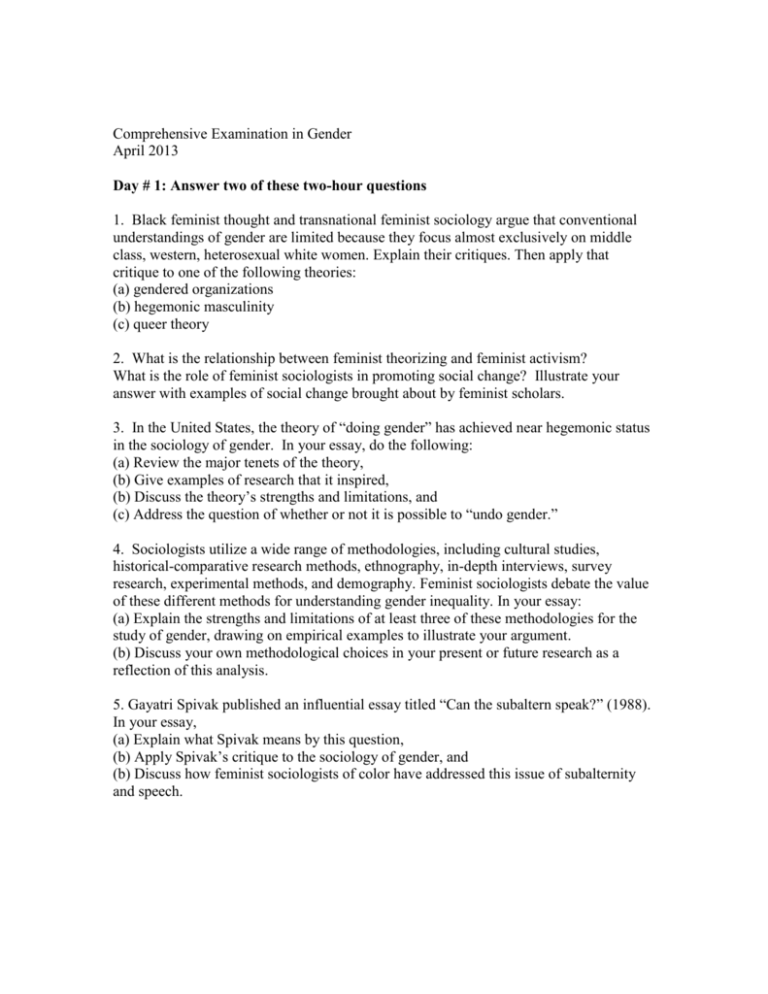
Comprehensive Examination in Gender April 2013 Day # 1: Answer two of these two-hour questions 1. Black feminist thought and transnational feminist sociology argue that conventional understandings of gender are limited because they focus almost exclusively on middle class, western, heterosexual white women. Explain their critiques. Then apply that critique to one of the following theories: (a) gendered organizations (b) hegemonic masculinity (c) queer theory 2. What is the relationship between feminist theorizing and feminist activism? What is the role of feminist sociologists in promoting social change? Illustrate your answer with examples of social change brought about by feminist scholars. 3. In the United States, the theory of “doing gender” has achieved near hegemonic status in the sociology of gender. In your essay, do the following: (a) Review the major tenets of the theory, (b) Give examples of research that it inspired, (b) Discuss the theory’s strengths and limitations, and (c) Address the question of whether or not it is possible to “undo gender.” 4. Sociologists utilize a wide range of methodologies, including cultural studies, historical-comparative research methods, ethnography, in-depth interviews, survey research, experimental methods, and demography. Feminist sociologists debate the value of these different methods for understanding gender inequality. In your essay: (a) Explain the strengths and limitations of at least three of these methodologies for the study of gender, drawing on empirical examples to illustrate your argument. (b) Discuss your own methodological choices in your present or future research as a reflection of this analysis. 5. Gayatri Spivak published an influential essay titled “Can the subaltern speak?” (1988). In your essay, (a) Explain what Spivak means by this question, (b) Apply Spivak’s critique to the sociology of gender, and (b) Discuss how feminist sociologists of color have addressed this issue of subalternity and speech.





